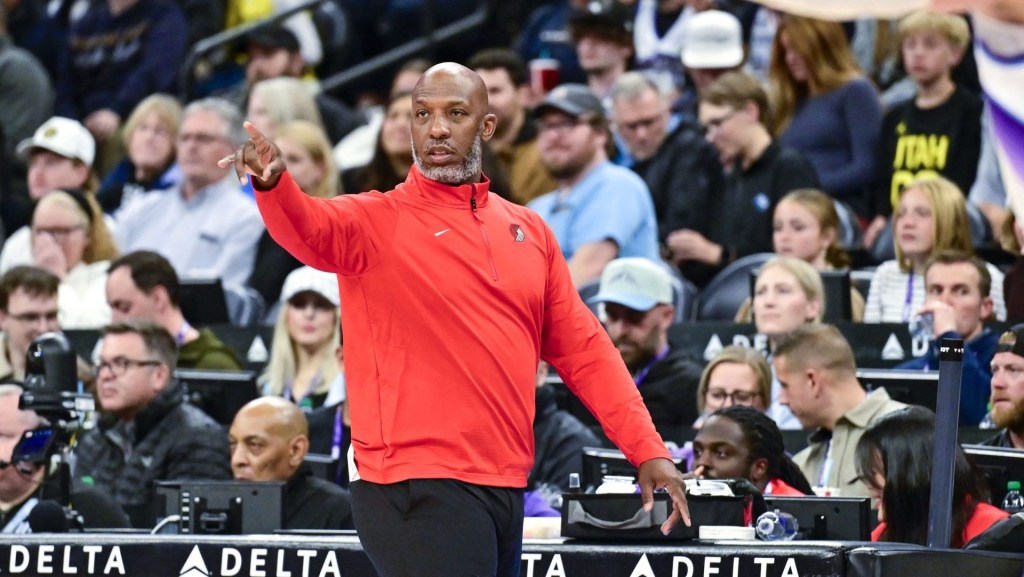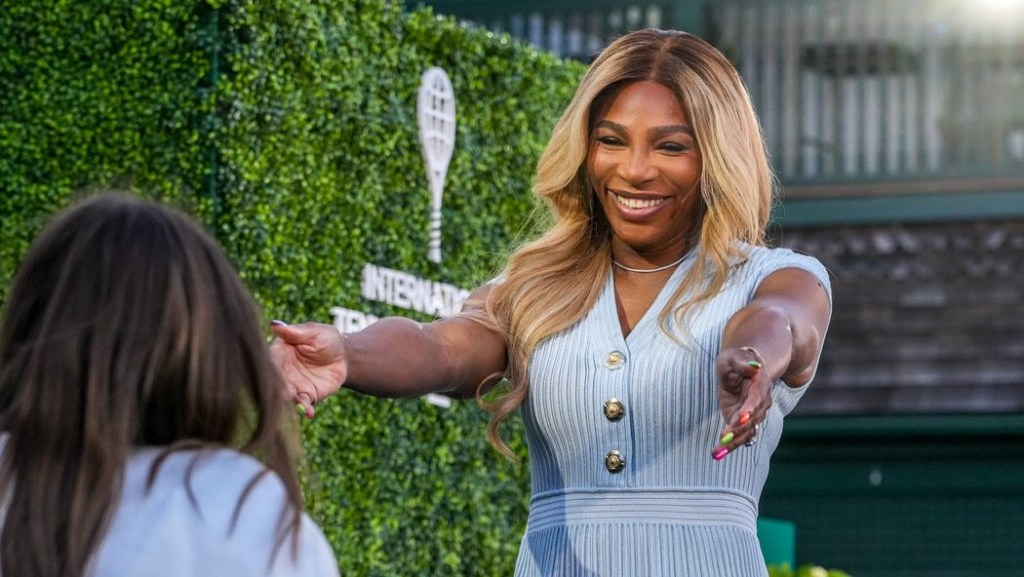Professional sports figures across the country have become targets for home break-ins this fall.
The string of burglaries began in mid-September in Minnesota and has since expanded across the country. Burglars are most often planning attacks during games when they know athletes will be out of their homes. Many of the residences that were targeted did have alarm systems, but in most cases, they weren’t turned on.
“It’s clear there’s some organized fashion here that we hope that the FBI and the authorities can handle,” NFL commissioner Roger Goodell said last week.
Until Sunday, all the incidents had occurred in the Midwest. Two athletes have been hit in the Minneapolis area, which is having its own string of high-end home break-ins that included Twins owner Jim Pohlad’s mansion in October 2023. Also in 2023, Los Angeles Dodgers players Freddie Freeman and Max Muncy experienced home invasions.
Here’s what we know about the incidents and how law enforcement and leagues have responded:
Who has been affected and when was the break-in at their home?
- Mike Conley, Minnesota Timberwolves, Sept. 15. Conley was a guest of honor at the Vikings game during the break-in
- Patrick Mahomes, Kansas City Chiefs, Oct. 5 (reported early Oct. 6)
- Travis Kelce, Kansas City Chiefs, Oct. 7 (reported early Oct. 8). The Chiefs played the Saints at home on Oct. 7
- Bobby Portis, Jr., Milwaukee Bucks, Nov. 2. The Bucks played the Cavaliers that night
- Linval Joseph, Dallas Cowboys, Nov. 18. The break-in happened at the former Vikings’ Minnesota home on the same day as a Cowboys game in Texas
- Joe Burrow, Cincinnati Bengals, Dec. 9. The Bengals were in Arlington playing the Cowboys on Monday Night Football
- The mother of Jaylen Brown, Boston Celtics, Dec. 15. Reports say it’s believed the burglars thought they were breaking into Brown’s home. The Celtics played an away game against the Wizards that night
- Luka Doncic, Dallas Mavericks, Dec. 27. The break-in happened at his Dallas home as the Mavs played the Suns, though Doncic, who is injured, was not playing.
What has been stolen?
Burglars took jewelry from Conley’s residence and $20,000 in cash from Kelce’s home, and caused about $1,000 in damage to a rear door. ABC News reported in November that police in Providence recovered Kelce’s stolen watch. Portis said the burglars took “most of [his] prized possessions.” Jewelry valued at about $30,000 was stolen from Doncic’s home, according to reports.
What have the leagues said?
The NFL and NBA each issued memos to teams last month, which were obtained by Front Office Sports. Both leagues gave recommendations for home security, including updating alarm systems.
The NFL has placed a big focus on social media habits, advising players to not post about their home or hotel, expensive items, or whereabouts until the end of the day. The league also recommended motion-sensor lights around the exterior of the home, keeping lights and a TV on when leaving, getting a house sitter, deadbolt locks, and security bars. The NFL said groups have gathered information about their targets online, but they have also pretended to be delivery drivers, maintenance workers, and joggers to familiarize themselves with the layouts of homes and neighborhoods.
The NBA suggested putting valuables in a safe secured to the floor, appropriately vetting contractors, and taking down real estate listings that show the inside of the home.
Getting a guard dog was another recommendation made by the NBA, and the NFL proposed trimming shrubbery to limit hiding spots.
Both leagues also offer extra security resources to players if they request them. Jets quarterback Aaron Rodgers said last week that he utilized them years ago. The NFL has “security experts that can come out to your house and give you ideas about where to put cameras, where the … weak spots are,” he said.
What has law enforcement said?
The memos show the FBI has been briefing the leagues, but it hasn’t said much publicly.
“The FBI neither confirms nor denies the existence of an investigation and has no further comment to provide,” the agency said in a statement to FOS. In November, NFL Network reported the FBI is investigating the incidents as part of a larger international crime scheme.
Some local officials have said they’re looking into it. Minnesota investigators from 12 different agencies are collaborating on a wider string of more than 60 burglaries in the area. The Southwest Ohio Burglary Task Force is investigating the break-in at Burrow’s home.
Others have been tight-lipped. After Portis made public pleas on social media with a $40,000 reward for information about his home invasion, local officials denied requests to release the police report, and when they did, it was nearly entirely redacted. At least one local news station in Wisconsin has filed a lawsuit against the police department over the document.
Who are the suspected criminals? What’s known about them?
The NFL memo described “organized and skilled groups,” while the NBA said the FBI told them many of the break-ins are connected to “South American Theft Groups.”
“These SATGs are reportedly well-organized, sophisticated rings that incorporate advanced techniques and technologies, including pre-surveillance, drones, and signal jamming devices,” the NBA memo reads. “The SATGs are primarily focused on cash and items that can be resold on the black market, such as jewelry, watches, and luxury bags.”
SATGs aren’t a new thing in law enforcement circles—the term goes back decades. On Dec. 9, U.S. Immigration and Customs Enforcement announced the arrest of 12 people originally from Chile, Colombia, and Peru that the agency said are connected to SATGs.
David Shapiro, a former FBI special agent and professor at John Jay College of Criminal Justice in New York, tells FOS he’s not sure there’s enough information to pin these crimes on South American groups specifically, but he says these are organized units working together. He says the groups likely aren’t holding on to the items very long, and are quickly selling them on the black market online.
“ The key is you want to get rid of it quickly. You don’t want to warehouse things like this,” Shapiro says. “So it depends on access to that virtual fencing network compared to the physical fencing network of pawn shops and such.”
Shapiro says the messaging app Telegram is a common platform to quickly sell stolen goods (its founder and CEO was arrested in France over allegations that the platform is used for illegal activity), and oftentimes these deals trade in cryptocurrency. This way, transactions avoid the banking system—and any financial authorities monitoring it.
“ The banks are of enormous help in this, and because of the financial system being the way it is with great dependence on the U.S. dollar, you can get them at the back end with a thorough due diligence process where people have to explain lots of money moving through their accounts,” Shapiro says.
Why is this happening now?
Shapiro says burglaries are under-investigated, and oftentimes don’t result in finding the thieves or missing items. He says there aren’t enough widespread countermeasures like house sitters, guard dogs, and built-in safes compared to the wealth of online knowledge available about these athletes, their wealth, and their whereabouts.
Some athletes do have those countermeasures in place. Rodgers and Dolphins quarterback Tua Tagovailoa both said last week that they have full-time private security at their homes. Rodgers said he did it because of Daily Mail stories showing off his home, and Tagovailoa said he wanted more protection after someone broke into his car about a year ago.







![[Subscription Customers Only] Jun 15, 2025; Seattle, Washington, USA; Botafogo owner John Textor inside the stadium before the match during a group stage match of the 2025 FIFA Club World Cup at Lumen Field.](https://frontofficesports.com/wp-content/uploads/2026/02/USATSI_26465842_168416386_lowres-scaled.jpg?quality=100&w=1024)
![[Subscription Customers Only] Jul 13, 2025; East Rutherford, New Jersey, USA; Chelsea FC midfielder Cole Palmer (10) celebrates winning the final of the 2025 FIFA Club World Cup at MetLife Stadium](https://frontofficesports.com/wp-content/uploads/2026/02/USATSI_26636703-scaled-e1770932227605.jpg?quality=100&w=1024)








